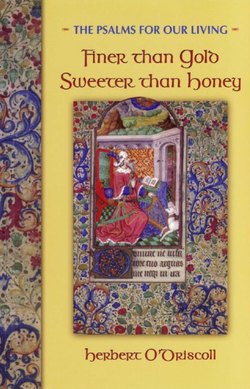Читать книгу The Psalms - Herbert O'Driscoll - Страница 12
На сайте Литреса книга снята с продажи.
ОглавлениеPsalm 5
All who take refuge in you will be glad;
they will sing out their joy for ever.
In his book From Beirut to Jerusalem, Thomas Friedman shows why the worlds of the West and the Middle East find it difficult to understand one another. One reason is that, in Middle Eastern life, the quality of forgiveness, or the refusal to act in response to being wronged or offended, can easily be taken for weakness, and can even lead to further attack.
Again and again the psalmist comes before God to plead a case, and the issue is almost always the same. Enemies surround him. He feels that he has done no wrong to deserve this. He beseeches God for help and, in the same breath, calls down the wrath of God on those who afflict him. “Those who lie in wait for me … there is no truth in their mouth; there is destruction in their heart. Their throat is an open grave … Declare them guilty, O God.”
Encountered repeatedly, this pattern becomes troubling to our modern ears. We begin to ask if perhaps the psalmist is projecting his own faults on to others. But something else in the pattern brings us up short. We find it here in the lines, “You are not a God who takes pleasure in wickedness, and evil cannot dwell with you. Braggarts cannot stand in your sight … You destroy those who speak lies; the bloodthirsty and the deceitful, O Lord, you abhor.”
The reason for the psalmist’s intense hatred of all that he regards as evil is not his imagined personal purity, but his blinding vision of the purity of God. Anything that offends this purity also offends the psalmist as a believer in this God. To him the universe makes no sense if God is other than this kind of absolute purity.
For the psalmist, certain things follow from this view. Either one is the friend or the enemy of this God. And the enemy of this God is therefore one’s own enemy, toward whom one can hurl every condemnation with a sense of absolute justification. This is the world of the psalmist. It is one in which we can partially but not wholly live. Nevertheless it is a world that has much spiritual insight to give us.
This psalm calls us to come before God, not casually as our Western minds so often do, but with the thought, “I will bow down toward your holy temple in awe of you.”
Again, this psalm offers a beautiful and grace-giving promise that we tend to ignore in our frenzied and driven activism: “All who take refuge in you will be glad; they will sing out their joy for ever.” These are the gifts of this psalm.
What is your understanding about the nature of God? How committed are you to those virtues that you attribute to God? Ask God for greater understanding and commitment to realize those virtues in your life. Pray that all people may seek the will of God.
